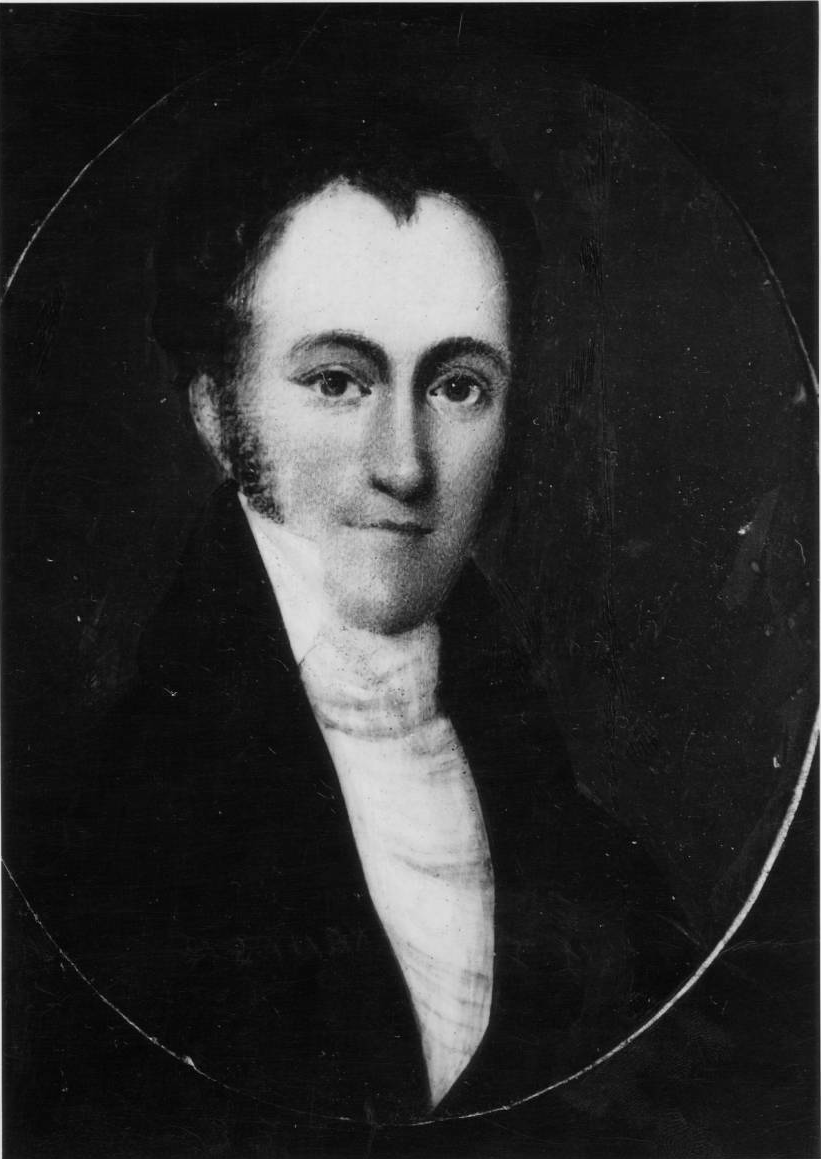Alexander, William Julius
March 1797–15 Feb. 1857
 William Julius Alexander, speaker of the North Carolina House of Commons, solicitor, and superintendent of the Charlotte branch of the U.S. Mint, was born in Salisbury, the son of William Alexander. He attended Poplar Tent Academy under the direction of a Reverend Dr. Robinson and was graduated from The University of North Carolina in 1816. After serving an apprenticeship under Archibald Henderson in Salisbury, Alexander was admitted to the bar in 1818. He married Catharine Wilson, daughter of Joseph Wilson, solicitor of the Sixth Circuit.
William Julius Alexander, speaker of the North Carolina House of Commons, solicitor, and superintendent of the Charlotte branch of the U.S. Mint, was born in Salisbury, the son of William Alexander. He attended Poplar Tent Academy under the direction of a Reverend Dr. Robinson and was graduated from The University of North Carolina in 1816. After serving an apprenticeship under Archibald Henderson in Salisbury, Alexander was admitted to the bar in 1818. He married Catharine Wilson, daughter of Joseph Wilson, solicitor of the Sixth Circuit.
In 1826 Alexander entered public life as a Democratic representative from Mecklenburg County in the North Carolina House of Commons. He served five consecutive terms from 1826 to 1831 and two additional terms in 1833–34 and 1834–35. He was speaker in 1829–30, 1833–34, and 1834–35. He also served as a trustee of The University of North Carolina from 1827 until 1856. Following the death of his father-in-law in August 1829, he was appointed solicitor in his stead; he resigned in 1833. In 1835 he was defeated by Romulus M. Saunders for a seat on the superior court. In 1846 President James K. Polk, a fellow alumnus of the university and member of the same campus literary society, appointed Alexander superintendent of the U.S. branch mint in Charlotte, succeeding Greene W. Caldwell, who volunteered to fight in the war with Mexico. Alexander held this position as late as 1851. At his retirement he moved to Lincolnton, where he died.
This person enslaved and owned other people. Many Black and African people, their descendants, and some others were enslaved in the United States until the Thirteenth Amendment abolished slavery in 1865. It was common for wealthy landowners, entrepreneurs, politicians, institutions, and others to enslave people and use enslaved labor during this period. To read more about the enslavement and transportation of African people to North Carolina, visit https://aahc.nc.gov/programs/africa-carolina-0. To read more about slavery and its history in North Carolina, visit https://www.ncpedia.org/slavery. - Government and Heritage Library, 2023
References:
Kemp P. Battle, History of the University of North Carolina, 2 vols. (1907–1912).
Daniel Lindsey Grant, Alumni History of the University of North Carolina (1924).
Henry T. Shanks, ed., The Papers of Willie Person Mangum, 5 vols. (1950–1956).
William L. Sherrill, Annals of Lincoln County, North Carolina (1937).
John H. Wheeler, Historical Sketches of North Carolina (1851).
John H. Wheeler, Reminiscences and Memoirs of North Carolina and Eminent North Carolinians (1884).
"W J Alexander." Sixth Census of the United States. 1840. Mecklenburg, North Carolina. Roll 365. Page 259. Family History Library Film 0018095. Accessed April 10, 2023 from Ancestry.com.
Image Credits:
William Julius Alexander. Folder 0028: Alexander, William Julius (b. 1797): Scan 1. Portrait Collection, circa 1720-1997; finding aid: http://www.lib.unc.edu/ncc/pcoll/inv/P0002/P0002.html. Image courtesy of University of North Carolina at Chapel Hill, Wilson Library, North Carolina Collection Photographic Archives.
1 January 1979 | Kirkman, Roger N.